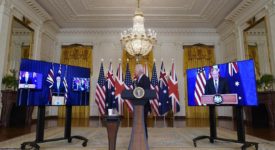American and European negotiators of the proposed Transatlantic Trade and Investment Partnership (TTIP) promised they would not include the privatization of public services in the deal due to the sensitivity of the issue on both sides of the Atlantic. Chief US trade negotiator, Dan Mullaney, said at the end of the seventh round of talks that TTIP negotiators were aware of the concern of the privatization of public services, such as national health care, education, or water utilities. He promised that the TTIP would not limit the ability of governments to regulate those services as they deem right. “The United States is not including such provisions in this trade agreement and will not do so in these negotiations,” he added at a news conference in Washington. EU chief negotiator, Ignacio Garcia Bercero, confirmed that the European side also excluded any commitment to public services. Mr Garcia Bercero moreover added that “nothing will be done” which could lower or endanger the protection of the environment, health, safety, consumers and data privacy.
TTIP talks, which started in July last year, are aiming to create the world’s biggest free-trade and investment agreement. The proposed text of the deal is considered by both the United States and the European Union as a means to boost the already solid business ties that both parties share. TTIP is generally hoped to stimulate economic growth and create jobs. Naturally, such an ambitious roadmap has raised many worries concerning sensitive topics, such as deregulation in the agricultural sector or consumer protection. Europeans are for instance particularly troubled by the possibility that the block will be forced to import now-banned US beef that is treated with hormones or crops from genetically modified seeds. Both Commissioner Garcia Bercero and his American counterpart agreed that the seventh round of talks that began last week was productive, but a long and challenging path lies ahead to finalize the agreement. “In an agreement of this importance and magnitude, these proposals are in many cases long and complex and require many hours of detailed and difficult discussions and analysis,” said Mr Mullaney. None of the two parties was willing to suggest a schedule for reaching a deal.







